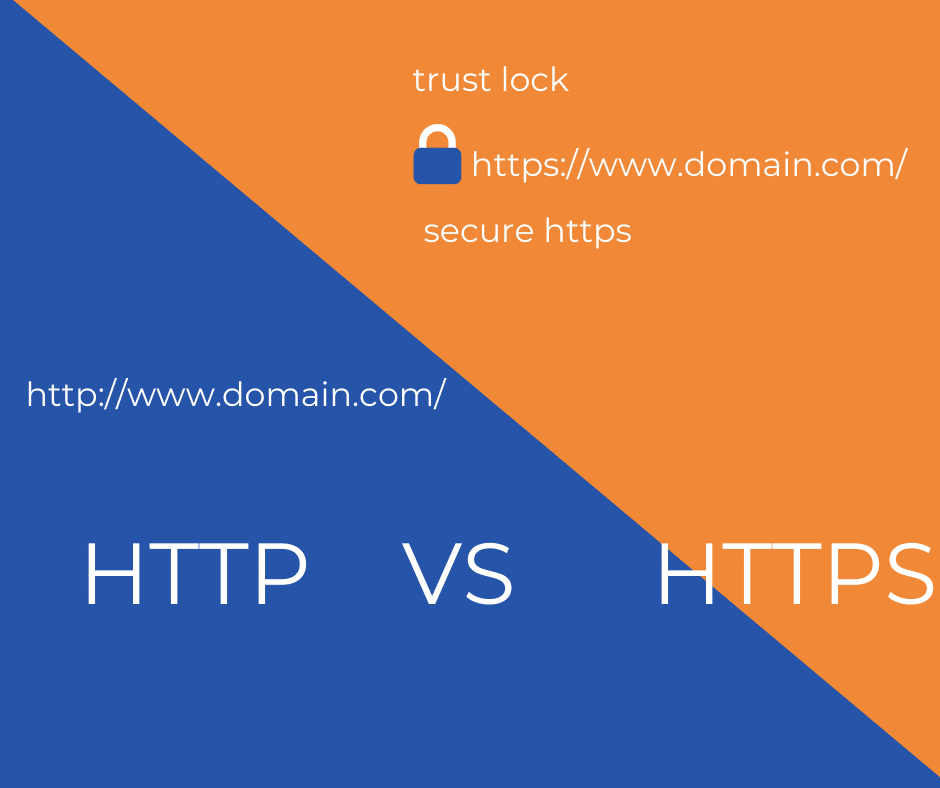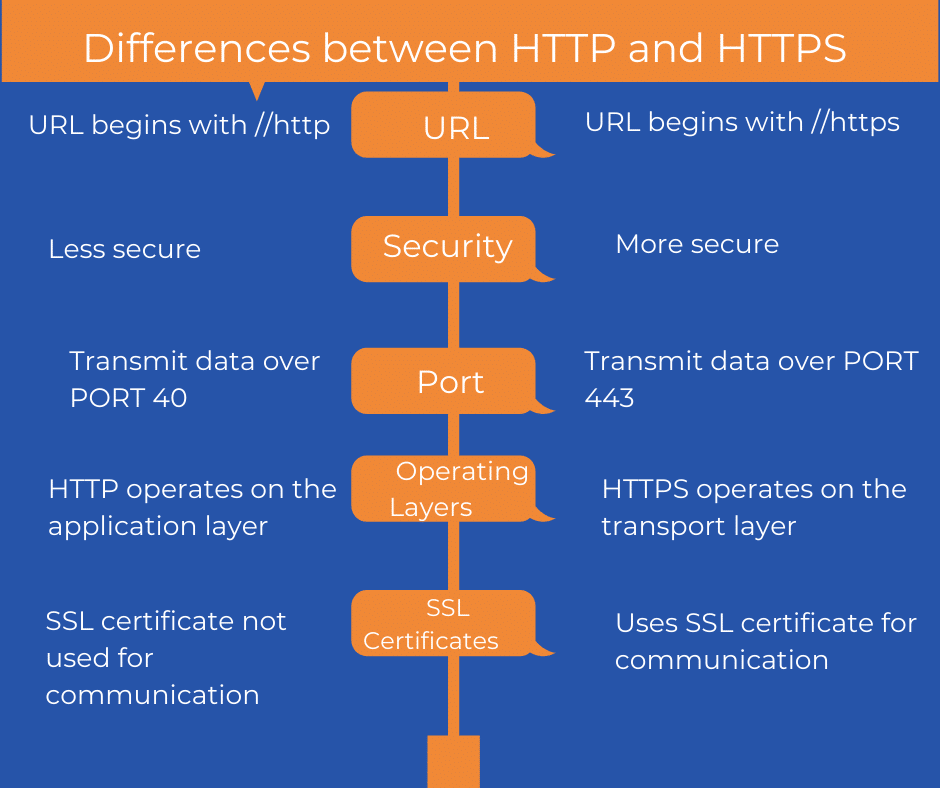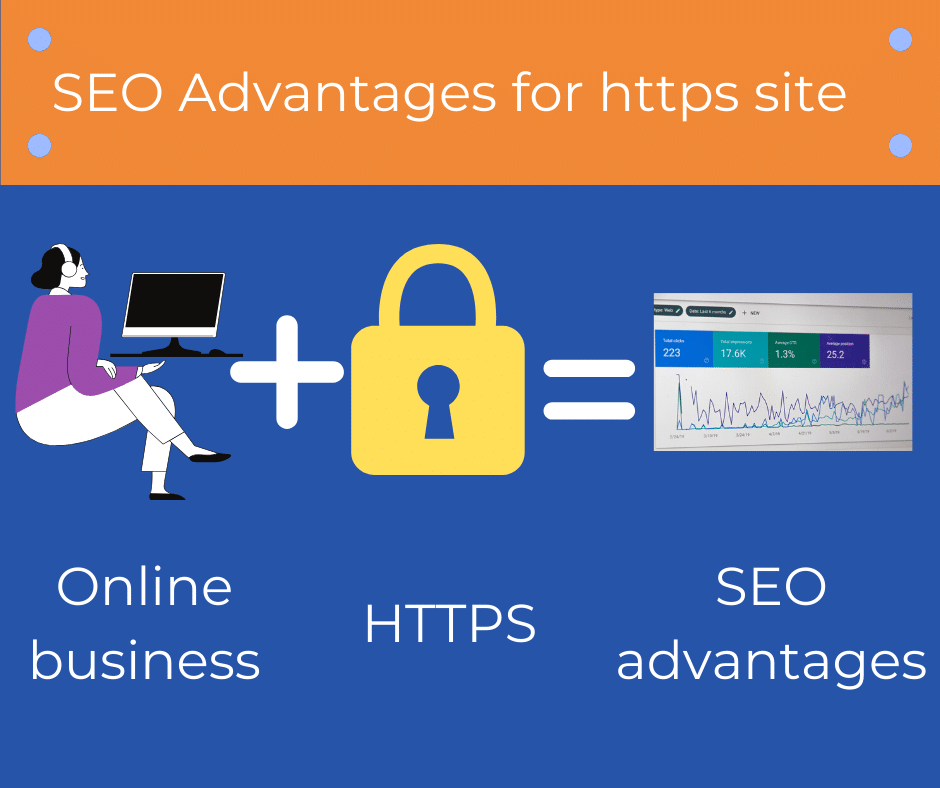
Protect Your Site: The Difference between HTTP and HTTPS
Tags: HTTPS Protocol,Website Security
eWay Corp June 24, 2020 2 MIN READ


HTTPS is the encrypted version of HTTP, a popular web protocol used to access data. The difference between the two is that the latter uses secured methods to encrypt any normal HTTP response or request. By using HTTPS, you ensure the security of your site’s data. Let’s find out more about these two web protocols and how they help your website.
After reading this post you’ll be able to understand:
- The difference between HTTP and HTTPS
- Why HTTP is not secure
- How it helps SEO
- How eWay Corp can help?
1. Difference between HTTP and HTTPS
HTTP stands for Hypertext Transfer Protocol. This protocol is used to transfer data via a network. The HTTP protocol is most commonly used to send information such as API calls or website content. There are 2 types of HTTP messages: requests and responses.
The ‘S’ in HTTPS stands for secure. By using an SSL or TLS certificate to encrypt the plain text in HTTP responses and requests, HTTPS ensures that your data is secured properly. HTTPS basically translates the data into a code and adds an extra layer of security with a TLS certificate.
To understand the difference let’s take an example:
A typical HTTP request will look like:
Get/hello.txt HTTP/1.1
User-Agent: curl/7.64.1 libcurl/7.64.1 OpenSSL/1.1.1 zlib/1.2.11
Host: www.randomexample.com
Accept-Language: en

2. Why HTTP is not secure & why you need to switch to HTTPS.
HTTP is a 15-year old protocol used for transmitting the data across the internet. The World Wide Web was built on this protocol and follows a client-server model. The web browser that initiates the HTTP request is known as the client. The server that responds to the request is known as the server.
As HTTP allows communication between various systems and data transfer from a browser to a server, this allows the users to view web pages. However, the flow of information is not encrypted, making data vulnerable. It becomes difficult to protect your sensitive information from being stolen in an HTTP protocol.
Now let’s say that you are accessing your Facebook account via a public Wi-Fi network. Potential network attacks are common with an unsecured ISP or a router. Public Wi-Fi connections are prone to such attacks.
Assuming that Facebook is using an HTTP protocol, the data is sent in an ‘un-encrypted’ format. Your personal data on Facebook is open and can be manipulated or intercepted by anyone.
This act of interception is called a network sniffing attack, where a hacker takes advantage of the unsecured HTTP protocol and steals your sensitive information. This could be your login information such as passwords, credit card numbers, bank account information, user IDs, and so on.
The responsibility of making everyone’s browsing experience secure is on the webmasters. So, if Facebook is not using a secured protocol it’s actually exposing your personal information to everyone.
Now that’s when HTTPS comes into the picture. By encrypting the responses and requests, it ensures that your data remains secured. Even if the hacker intercepts your data, he’ll only see an encrypted version or random characters.
To understand the advantage , try imagining a box full of valuables with an indestructible combination lock. Only the sender and the receiver know the combination and even if the hacker gets a hold of the box, he wouldn’t be able to open it.
What is an SSL/TLS certificate and how does it work to encrypt HTTP requests/responses?
To keep your data confidential, it uses Transport Layer Security Protocol (TSL) which is also known as SSL or Security Sockets Layer.
SSL is a secure certificate which offers data protection in three levels.
2.1. Encryption
All data sent between the client (browser) and server (website) is encrypted. If the data is stolen or intercepted in between by a hacker, he won’t be able to decode it.
2.2. Data integrity
This functionality ensures that if someone wants to modify, manipulate or corrupt the data in transit, the act will be easily detected/caught.
2.3. Authentication
This is a verification process that validates the user’s request of accessing data to communicate with the intended website.
TLS uses a technology known as public key encryption for encrypting the responses/requests. There are 2 types of keys: public and private.
When the client and server are connected, both the devices use the public and private key to encrypt the data. A session key unique to that particular session of data transfer is initiated. The session key adds another layer of security further encrypting the information. As a result, you see a string of characters, not plain text when you look at the information.

3. How HTTPS helps SEO
If the security reasons for HTTPS are not enticing enough to switch over, let’s talk about the SEO advantages.
3.1. Think about ranking
Google Chrome is one of the most popular browsers, and if the site does not have HTTPS, it labels it as ‘not secure’. Consider this is a red flag especially if you’re involved in e-commerce.
Google also gives preference to sites that use it. So, if you’re using a secured site, and your competitors are not, you’re sure to get a competitive edge in Google ranking.
3.2. It is required to implement AMP
You can’t leverage the power of AMP (Accelerated Mobile Pages) without switching to HTTPS. Google launched AMP to upload content into mobile sites at a much faster rate. AMP content has a prominent presence in Google’s SERPs.
With Google prioritizing mobile-first sites and more searches coming from mobile, it’s important to switch to create a mobile-friendly site.

How eWay Corp can help
HTTPS builds trust, and to build trust in business, you need to assure your customers/clients that you’re doing everything to make their websites secure. Making the switch is worth the investment to protect your users. What you need is a good web hosting company that has the technical support, know-how, and tools to add a distinctive edge to your business.



